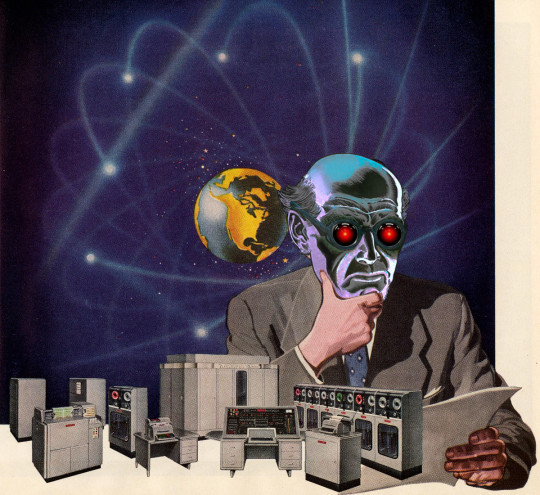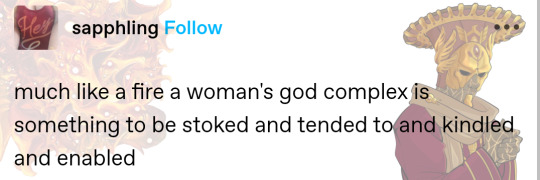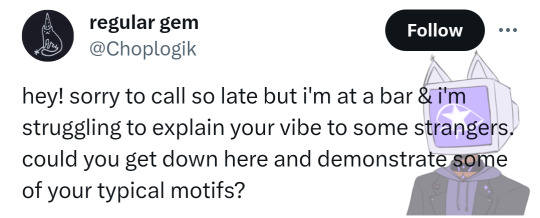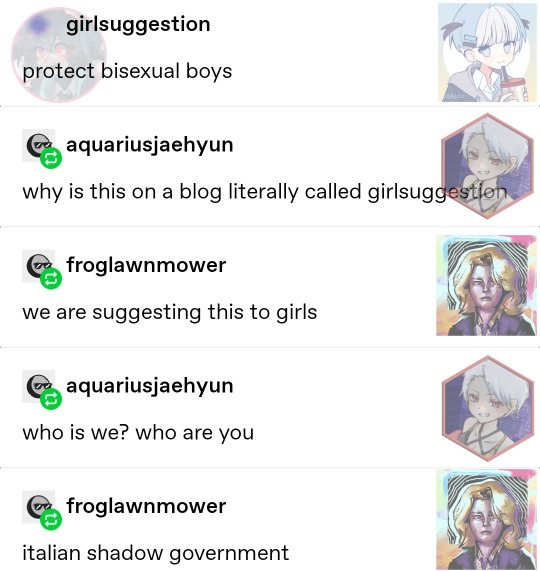#Schumpeter
Text
Big Tech disrupted disruption

If you'd like an essay-formatted version of this post to read or share, here's a link to it on pluralistic.net, my surveillance-free, ad-free, tracker-free blog:
https://pluralistic.net/2024/02/08/permanent-overlords/#republicans-want-to-defund-the-police

Before "disruption" turned into a punchline, it was a genuinely exciting idea. Using technology, we could connect people to one another and allow them to collaborate, share, and cooperate to make great things happen.
It's easy (and valid) to dismiss the "disruption" of Uber, which "disrupted" taxis and transit by losing $31b worth of Saudi royal money in a bid to collapse the world's rival transportation system, while quietly promising its investors that it would someday have pricing power as a monopoly, and would attain profit through price-gouging and wage-theft.
Uber's disruption story was wreathed in bullshit: lies about the "independence" of its drivers, about the imminence of self-driving taxis, about the impact that replacing buses and subways with millions of circling, empty cars would have on traffic congestion. There were and are plenty of problems with traditional taxis and transit, but Uber magnified these problems, under cover of "disrupting" them away.
But there are other feats of high-tech disruption that were and are genuinely transformative – Wikipedia, GNU/Linux, RSS, and more. These disruptive technologies altered the balance of power between powerful institutions and the businesses, communities and individuals they dominated, in ways that have proven both beneficial and durable.
When we speak of commercial disruption today, we usually mean a tech company disrupting a non-tech company. Tinder disrupts singles bars. Netflix disrupts Blockbuster. Airbnb disrupts Marriott.
But the history of "disruption" features far more examples of tech companies disrupting other tech companies: DEC disrupts IBM. Netscape disrupts Microsoft. Google disrupts Yahoo. Nokia disrupts Kodak, sure – but then Apple disrupts Nokia. It's only natural that the businesses most vulnerable to digital disruption are other digital businesses.
And yet…disruption is nowhere to be seen when it comes to the tech sector itself. Five giant companies have been running the show for more than a decade. A couple of these companies (Apple, Microsoft) are Gen-Xers, having been born in the 70s, then there's a couple of Millennials (Amazon, Google), and that one Gen-Z kid (Facebook). Big Tech shows no sign of being disrupted, despite the continuous enshittification of their core products and services. How can this be? Has Big Tech disrupted disruption itself?
That's the contention of "Coopting Disruption," a new paper from two law profs: Mark Lemley (Stanford) and Matthew Wansley (Yeshiva U):
https://papers.ssrn.com/sol3/papers.cfm?abstract_id=4713845
The paper opens with a review of the literature on disruption. Big companies have some major advantages: they've got people and infrastructure they can leverage to bring new products to market more cheaply than startups. They've got existing relationships with suppliers, distributors and customers. People trust them.
Diversified, monopolistic companies are also able to capture "involuntary spillovers": when Google spends money on AI for image recognition, it can improve Google Photos, YouTube, Android, Search, Maps and many other products. A startup with just one product can't capitalize on these spillovers in the same way, so it doesn't have the same incentives to spend big on R&D.
Finally, big companies have access to cheap money. They get better credit terms from lenders, they can float bonds, they can tap the public markets, or just spend their own profits on R&D. They can also afford to take a long view, because they're not tied to VCs whose funds turn over every 5-10 years. Big companies get cheap money, play a long game, pay less to innovate and get more out of innovation.
But those advantages are swamped by the disadvantages of incumbency, all the various curses of bigness. Take Arrow's "replacement effect": new companies that compete with incumbents drive down the incumbents' prices and tempt their customers away. But an incumbent that buys a disruptive new company can just shut it down, and whittle down its ideas to "sustaining innovation" (small improvements to existing products), killing "disruptive innovation" (major changes that make the existing products obsolete).
Arrow's Replacement Effect also comes into play before a new product even exists. An incumbent that allows a rival to do R&D that would eventually disrupt its product is at risk; but if the incumbent buys this pre-product, R&D-heavy startup, it can turn the research to sustaining innovation and defund any disruptive innovation.
Arrow asks us to look at the innovation question from the point of view of the company as a whole. Clayton Christensen's "Innovator's Dilemma" looks at the motivations of individual decision-makers in large, successful companies. These individuals don't want to disrupt their own business, because that will render some part of their own company obsolete (perhaps their own division!). They also don't want to radically change their customers' businesses, because those customers would also face negative effects from disruption.
A startup, by contrast, has no existing successful divisions and no giant customers to safeguard. They have nothing to lose and everything to gain from disruption. Where a large company has no way for individual employees to initiate major changes in corporate strategy, a startup has fewer hops between employees and management. What's more, a startup that rewards an employee's good idea with a stock-grant ties that employee's future finances to the outcome of that idea – while a giant corporation's stock bonuses are only incidentally tied to the ideas of any individual worker.
Big companies are where good ideas go to die. If a big company passes on its employees' cool, disruptive ideas, that's the end of the story for that idea. But even if 100 VCs pass on a startup's cool idea and only one VC funds it, the startup still gets to pursue that idea. In startup land, a good idea gets lots of chances – in a big company, it only gets one.
Given how innately disruptable tech companies are, given how hard it is for big companies to innovate, and given how little innovation we've gotten from Big Tech, how is it that the tech giants haven't been disrupted?
The authors propose a four-step program for the would-be Tech Baron hoping to defend their turf from disruption.
First, gather information about startups that might develop disruptive technologies and steer them away from competing with you, by investing in them or partnering with them.
Second, cut off any would-be competitor's supply of resources they need to develop a disruptive product that challenges your own.
Third, convince the government to pass regulations that big, established companies can comply with but that are business-killing challenges for small competitors.
Finally, buy up any company that resists your steering, succeeds despite your resource war, and escapes the compliance moats of regulation that favors incumbents.
Then: kill those companies.
The authors proceed to show that all four tactics are in play today. Big Tech companies operate their own VC funds, which means they get a look at every promising company in the field, even if they don't want to invest in them. Big Tech companies are also awash in money and their "rival" VCs know it, and so financial VCs and Big Tech collude to fund potential disruptors and then sell them to Big Tech companies as "aqui-hires" that see the disruption neutralized.
On resources, the authors focus on data, and how companies like Facebook have explicit policies of only permitting companies they don't see as potential disruptors to access Facebook data. They reproduce internal Facebook strategy memos that divide potential platform users into "existing competitors, possible future competitors, [or] developers that we have alignment with on business models." These categories allow Facebook to decide which companies are capable of developing disruptive products and which ones aren't. For example, Amazon – which doesn't compete with Facebook – is allowed to access FB data to target shoppers. But Messageme, a startup, was cut off from Facebook as soon as management perceived them as a future rival. Ironically – but unsurprisingly – Facebook spins these policies as pro-privacy, not anti-competitive.
These data policies cast a long shadow. They don't just block existing companies from accessing the data they need to pursue disruptive offerings – they also "send a message" to would-be founders and investors, letting them know that if they try to disrupt a tech giant, they will have their market oxygen cut off before they can draw breath. The only way to build a product that challenges Facebook is as Facebook's partner, under Facebook's direction, with Facebook's veto.
Next, regulation. Starting in 2019, Facebook started publishing full-page newspaper ads calling for regulation. Someone ghost-wrote a Washington Post op-ed under Zuckerberg's byline, arguing the case for more tech regulation. Google, Apple, OpenAI other tech giants have all (selectively) lobbied in favor of many regulations. These rules covered a lot of ground, but they all share a characteristic: complying with them requires huge amounts of money – money that giant tech companies can spare, but potential disruptors lack.
Finally, there's predatory acquisitions. Mark Zuckerberg, working without the benefit of a ghost writer (or in-house counsel to review his statements for actionable intent) has repeatedly confessed to buying companies like Instagram to ensure that they never grow to be competitors. As he told one colleague, "I remember your internal post about how Instagram was our threat and not Google+. You were basically right. The thing about startups though is you can often acquire them.”
All the tech giants are acquisition factories. Every successful Google product, almost without exception, is a product they bought from someone else. By contrast, Google's own internal products typically crash and burn, from G+ to Reader to Google Videos. Apple, meanwhile, buys 90 companies per year – Tim Apple brings home a new company for his shareholders more often than you bring home a bag of groceries for your family. All the Big Tech companies' AI offerings are acquisitions, and Apple has bought more AI companies than any of them.
Big Tech claims to be innovating, but it's really just operationalizing. Any company that threatens to disrupt a tech giant is bought, its products stripped of any really innovative features, and the residue is added to existing products as a "sustaining innovation" – a dot-release feature that has all the innovative disruption of rounding the corners on a new mobile phone.
The authors present three case-studies of tech companies using this four-point strategy to forestall disruption in AI, VR and self-driving cars. I'm not excited about any of these three categories, but it's clear that the tech giants are worried about them, and the authors make a devastating case for these disruptions being disrupted by Big Tech.
What do to about it? If we like (some) disruption, and if Big Tech is enshittifying at speed without facing dethroning-by-disruption, how do we get the dynamism and innovation that gave us the best of tech?
The authors make four suggestions.
First, revive the authorities under existing antitrust law to ban executives from Big Tech companies from serving on the boards of startups. More broadly, kill interlocking boards altogether. Remember, these powers already exist in the lawbooks, so accomplishing this goal means a change in enforcement priorities, not a new act of Congress or rulemaking. What's more, interlocking boards between competing companies are illegal per se, meaning there's no expensive, difficult fact-finding needed to demonstrate that two companies are breaking the law by sharing directors.
Next: create a nondiscrimination policy that requires the largest tech companies that share data with some unaffiliated companies to offer data on the same terms to other companies, except when they are direct competitors. They argue that this rule will keep tech giants from choking off disruptive technologies that make them obsolete (rather than competing with them).
On the subject of regulation and compliance moats, they have less concrete advice. They counsel lawmakers to greet tech giants' demands to be regulated with suspicion, to proceed with caution when they do regulate, and to shape regulation so that it doesn't limit market entry, by keeping in mind the disproportionate burdens regulations put on established giants and small new companies. This is all good advice, but it's more a set of principles than any kind of specific practice, test or procedure.
Finally, they call for increased scrutiny of mergers, including mergers between very large companies and small startups. They argue that existing law (Sec 2 of the Sherman Act and Sec 7 of the Clayton Act) both empower enforcers to block these acquisitions. They admit that the case-law on this is poor, but that just means that enforcers need to start making new case-law.
I like all of these suggestions! We're certainly enjoying a more activist set of regulators, who are more interested in Big Tech, than we've seen in generations.
But they are grossly under-resourced even without giving them additional duties. As Matt Stoller points out, "the DOJ's Antitrust Division has fewer people enforcing anti-monopoly laws in a $24 trillion economy than the Smithsonian Museum has security guards."
https://www.thebignewsletter.com/p/congressional-republicans-to-defund
What's more, Republicans are trying to slash their budgets even further. The American conservative movement has finally located a police force they're eager to defund: the corporate police who defend us all from predatory monopolies.

Image:
Cryteria (modified)
https://commons.wikimedia.org/wiki/File:HAL9000.svg
CC BY 3.0
https://creativecommons.org/licenses/by/3.0/deed.en
#pluralistic#coopting disruption#law and political economy#law#economics#competition#big tech#tech#innovation#acquihires#predatory acquisitions#mergers and acquisitions#disruption#schumpeter#the curse of bigness#clay christensen#josef schumpeter#christensen#enshittiification#business#regulation#scholarship
285 notes
·
View notes
Text
marx makes a lot more sense in historical context. he was writing in the 1880s trying to explain the revolutions of 1848 and using that framework to predict the 1900s. but if you try to apply unrevised marxist analysis to the 21st century you end up with a proletariat that includes hedge fund managers and essentially no capitalist class (with rare exceptions like the kochs and maybe the waltons)
if your class analysis is PMC/bourgeoisie/proletariat (which fits the 21st century world where capital is allocated by institutions) instead of capital/bourgeoisie/proletariat a lot of things with retro-leftist aesthetics look instead like a way of people actually maintaining their dominant class position
also if you define conservative/reactionary as people trying to maintain the world as it is or as it was during their parent's generation instead of trying to maintain the world as it was in middle 19th century europe then a lot of the most conservative people are nominally on the left
1 note
·
View note
Text

“The typical citizen drops down to a lower level of mental performance as soon as he enters the political field. He argues and analyzes in a way which he would readily recognize as infantile within the sphere of his real interests. He becomes primitive again.”
Joseph Schumpeter
#Schumpeter#LowEQ#Propaganda#Unconscious#Puppets#MindControl#Parochialism#Circus#Politrix#Indoctrinated#Bigotry#Division#wake up#divided we fall
1 note
·
View note
Text
Schumpeter, a maverick economist of the 20th century, challenged norms with his views on democracy and capitalism. From envisioning them as dynamic systems to critiquing classical theories, his legacy sparks intellectual debates, urging us to rethink the link between politics and economics.
0 notes
Text
Marx, Tocqueville e Schumpeter: história e compromisso ético-político
O compromisso ético-político de Marx é convergente com sua teoria da história. Assim pode-se atribuir ao autor alemão a perspectiva de um “otimismo catastrófico”, como notou Raymond Aron. O socialismo se apresenta como necessidade e devir, superação das relações de produção irracionais próprias do capitalismo e da economia de mercado.
Já para Tocqueville e Schumpeter, as tendências históricas se chocam com a constelação de valores professada por ambos autores. Para o primeiro, a modernidade tende inexoravelmente para a democracia, para o nivelamento das condições sociais e desaparecimento das formas aristocráticas de organização social. Já para Schumpeter, é o próprio socialismo que se apresenta no horizonte futuro inexorável. Porém, o diagnóstico sobre o devir em ambos os autores se choca com suas preferências ético-políticas, informadas respectivamente pela liberdade aristocrática e pelo capitalismo liberal concorrencial. Assim, as conclusões positivas da ciência estão em confronto com e os princípios normativos da boa ordem política.
Daí a consciência tranquila de Marx, de uma filosofia da história que, a despeito do conflito e do caráter catastrófico do capitalismo, tende ao final à harmonia e à reconciliação do homem consigo. Ao passo que seus colegas se debatem entre a consciência de uma história avessa aos seus princípios ético-políticos. É verdade que a alternativa ao socialismo é a barbárie, mas esta nunca é levada a sério como telos inexorável da história, dada a crença iluminista na capacidade criativa da ação humana.
Contudo, deve-se notar também que apesar dessa consciência atormentada, informada uma uma teleologia histórica que escapa aos desejos do analista, tanto Tocqueville quanto Schumpeter vêm possibilidades de mitigar os efeitos dessa da democracia e do socialismo sobre a liberdade humana. Embora a modernidade configure o advento de padrões de servidão, a função da teoria política seria precisamente enfrentar essas condições adversas, apontando possibilidades de conservação da liberdade. Trata-se de uma teoria política que muito embora esteja inscrita em uma teleologia histórica unívoca no que tange a forma social, abre possibilidades para distintas formas de organização política. A história é uma linha contínua que em algum ponto se bifurca e pode levar à servidão ou à liberdade. Temos então os seguintes caminhos:

Tocqueville e Schumpeter assim repercutem um pessimismo da razão histórica e um otimismo moderado da ação política. Exploram assim, possibilidades de combinar igualdade de condições e liberdade política (Tocqueville) e socialismo e democracia (Schumpeter). Marx, por sua vez, acredita na benevolência da história que, a despeito da corrupção moral dos homens sob o capitalismo, os reconciliará, pela força dos fatos, consigo mesmos.
1 note
·
View note
Video
#activebringas #OrganizacionyGestiondeEmpresas #FACIPUCP #estrategias #Mintzberg #Porter #Prahalad #Chandler #Steiner #matrizBCG #Schumpeter (en Santiago De Surco, Lima, Peru) https://www.instagram.com/p/CfP-KW9DtWA/?igshid=NGJjMDIxMWI=
#activebringas#organizacionygestiondeempresas#facipucp#estrategias#mintzberg#porter#prahalad#chandler#steiner#matrizbcg#schumpeter
0 notes
Text

felt like drawing my other ocs from a different setting
#my art#digital#oc#ocs#mr arrow#mr schumpeter#mr galbraith#michelle#corporative bug#still thinking about the code name for the setting though
12 notes
·
View notes
Text
Joseph Schumpeter Institut Wels - freiwillige Vereinsauflösung
Mit einstimmigem Beschluss der Generalversammlung vom 05. April 2024 hat der Verein Joseph Schumpeter Institut Wels (JSI) seine freiwillige Auflösung beschlossen und sich damit nach mehr als 20jähriger Vereinstätigkeit selbst aufgelöst.
Die erfolgreiche Durchführung von Seminaren und Lehrgängen und insbesondere der Fernstudien (Vereinszweck) war schon Jahre davor Vienna International Studies…

View On WordPress
#Fernstudien#Joseph Schumpeter Institut#Lehrgänge universitären Charakters#online Bachelor#Online Master#online promovieren#VIS Management GmbH#VIS Vienna International Studies
0 notes
Text

Molière seez: Creative destruction
0 notes
Text
VOLKSRAAD KOLONIAL DAN VOLKASRAAD MERDEKA
Apakah kini tak terpikir bagi para anggota Volksraad zaman merdeka untuk meributkan perikeadaan rakyat yang dimestikan oleh konstitusi untuk diperjuangkan? Memperjuangkan demokrasi menjadi lebih demokratis, berkeseriusan dalam memperjuangkan kesetaraan politik, membongkar bahaya teriakan tirani mayoritas dalam keterjaminan surplus hak istimewa dalam praktik tirani minoritas yang disembunyikan,…

View On WordPress
#ARAB#B.JILDERDA#DEWAN KOLONIAL#DEWAN RAKYAT#EMILY GORDINE#GUBERNUR-JENDRAL J.P. VAN LIMBURG STIRUM#INDIA#JOSEPH SCHUMPETER#MENTERI URUSAN KOLONI BELANDA THOMAS BASTIAAN PLEYTE#NEDERLAND INDONESIE IN DE TWINTIGSTE EEUW#O.DAMSTE#PEMILIHAN UMUM#PERWAKILAN RAKYAT HINDIA BELANDA#POLIARKI#PRIBUMI#REZIM DIGITAL OTORITER#ROBERT DAHL#RUU PLEYTE#TIONGHOA#VOLKSRAAD
0 notes
Photo

#quotes#Joseph A Schumpeter#politicians are like bad horsemen#staying in the saddle#where they're going
0 notes
Text
Green economy, un nuovo approccio all’economia
Green economy, un nuovo approccio all’economia
Secondo l’economista tedesco Joseph Schumpeter la crisi che stiamo vivendo è la normale alternanza prevista dal nostro sistema economico, un sistema che elimina le imprese meno competitive ed obsolete e lascia spazio di crescita all’innovazione tecnologica e di idee. Questo significa che l’attuale crisi potrebbe costituire anche per l’Italia, un’opportunità per rifondare la propria economia. Ed è…

View On WordPress
0 notes
Text
collection of textpost edits for my group's igf playthrough (some canon npcs are here too but this is mostly me and my friends' ocs. i apologize in advance)






























featured ocs (ordered by appearance in this post):
Marthe Callifrastus Philippus Aureolus Theophrastus Bombastus von Hohenheim-Popper-Schumpeter NHQ JWHJ 0715, callsign 9 Thermidor, (she/they/it, played by @sagit---taurus, art by itself)
Ember Bon Idris, callsign S'more (it/she/drae, played by our gm @sekiyo, art by wine0cellar (twitter))
Alison "Alice" Mussorgsky, callsign Angel Bunny (she/her, played by @crunchy-lesbun, art by tsui (picrew))
Sou Spacius Lynk, callsign ALSCIAUKAT (they/it/lynx, played by me, art by myself)
Jeanne Ovark, callsign Saint (she/they, played by @lemonorangelyr, art by herself)
callsign Cŵn Annwn (she/her, former npc, played by sekiyo, art by 天界梧桐树 (neka))
Chandler Capall, callsign Lavender (any pronouns, played by sagit---taurus, art by itself)
Mag Mell Charopós, callsign BLOODBAG (he/it, npc, played by sekiyo, art by jello_feesh (twitter))
Acacia "Crunch" Mussorgsky, callsign Devil Bunny (bun/buns, played by crunchy-lesbun, art by tsui (picrew))
Eric, callsign Uranus (he/him, played by @omaticwriting, art by me)
Seabunny (she/her, npc, played by crunchy-lesbun, art by ✦絢瀬 (picrew))
V1-CK "Vick", callsign Vickers (he/him, played by omaticwriting, art by me)
Kali Kimaka, callsign Mahavidya (any pronouns, played by @the-eden-snow, art by ヨイコ (picrew) with minor color edits by herself and me)
this will not be the last as i hit the image limit already and as of writing this we are barely past halfway through the first act
#lancer rpg#in golden flame#oc: alsciaukat#friend oc: marthe#friend oc: s'more#friend oc: alice#friend oc: crunch#friend oc: saint#friend oc: vick#friend oc: annwn#friend oc: lavender#friend oc: bloodbag#feather igf#ignatius aurum#friend oc: eric#friend oc: kali#friend oc: seabunny#long post#so sorry for being autistic about ocs it will happen again#oc tag#we will not burn
61 notes
·
View notes
Note
you don't have the balls to read literally one complete book you disagree with. you don't have the guts to even be a real conservative. you don't have the guts to read schumpeter or hayek because they'd urge you to also read shit by marx and dworkin. you're a fucking coward playing dress-up. you don't even recognize these fucking names.
Oh, so you're one of those "if you haven't read my favorite book you're not a real _____" weirdos, XD
Sorry dude, while I do occasionally read political books, I like to form my own ideas instead of just regurgitating shit I read from people I put on a pedestal. You do you, though.
19 notes
·
View notes
Text
just realized that I think Joseph schumpeter and Dr. Ambedkar were both at Columbia at the same time. Again prestigious university etc you can make a million stories like this but that’s kind of wild.
Reminds me that Oxford apparently actually had to coin the official Latin rendering of ‘Port of Spain, Trinidad’ specifically for Naipaul’s admission. History is weeeeird

11 notes
·
View notes
Text
Crime in America is completely out of control. Since looting is legal in Soros-backed blue cities, countless stores and businesses are fleeing. This is also occurring with the most basic stores, such as pharmacies and grocers. Countless stores have begun locking up their inventory, and shoppers must flag down an associate to purchase low-cost items. They do not even do this in third-world countries as the issue here is psychological. Crime and not creative destruction will be the end of brick & mortar stores.
One pharmacy in Washington, DC, has resorted to arranging pictures of products on their shelves. One social media user showed that even the toilet paper is missing from the shelves, replaced with a framed picture of the product. The workers at these locations cannot personally shop for each customer, and people are refraining from in-person shopping in general.
Around 70% of the US population shops online, spending an average of $3,428 per year. This figure will likely rise as it is simply not possible to shop in physical stores amid this intense crime wave. Online shopping in the US has increased by 16.2% since 2020, and global online sales are expected to reach $7 trillion in 2024. This is an international trend as countries like the Philippines (+26%), India (+26%), Indonesia (+23%), Brazil (+22), and Vietnam (+19%) among countless others have seen a spike in e-commerce in the past year alone.
In Asia, the shift toward online shopping is due to convenience. This is the creative destruction Schumpeter promoted, as it is simply faster and more time-efficient for many to shop online. In the US, however, the trend toward online shopping is being fueled by CRIME.
10 notes
·
View notes